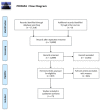Sleep Quality and Aging: A Systematic Review on Healthy Older People, Mild Cognitive Impairment and Alzheimer's Disease
- PMID: 35886309
- PMCID: PMC9325170
- DOI: 10.3390/ijerph19148457
Sleep Quality and Aging: A Systematic Review on Healthy Older People, Mild Cognitive Impairment and Alzheimer's Disease
Abstract
Aging is characterized by changes in the structure and quality of sleep. When the alterations in sleep become substantial, they can generate or accelerate cognitive decline, even in the absence of overt pathology. In fact, impaired sleep represents one of the earliest symptoms of Alzheimer's disease (AD). This systematic review aimed to analyze the studies on sleep quality in aging, also considering mild cognitive impairment (MCI) and AD. The review process was conducted according to the PRISMA statement. A total of 71 studies were included, and the whole sample had a mean age that ranged from 58.3 to 93.7 years (62.8-93.7 healthy participants and 61.8-86.7 pathological populations). Of these selected studies, 33 adopt subjective measurements, 31 adopt objective measures, and 10 studies used both. Pathological aging showed a worse impoverishment of sleep than older adults, in both subjective and objective measurements. The most common aspect compromised in AD and MCI were REM sleep, sleep efficiency, sleep latency, and sleep duration. These results underline that sleep alterations are associated with cognitive impairment. In conclusion, the frequency and severity of sleep disturbance appear to follow the evolution of cognitive impairment. The overall results of objective measures seem more consistent than those highlighted by subjective measurements.
Keywords: Alzheimer; aging; healthy elderly; mild cognitive impairment; older; sleep quality.
Conflict of interest statement
The authors declare no conflict of interest.
Figures
References
-
- Guarino A., Forte G., Giovannoli J., Casagrande M. Executive Functions in the elderly with mild cognitive impairment: A systematic review on motor and cognitive inhibition, conflict control and cognitive flexibility. Aging Ment. Health. 2020;24:1028–1045. doi: 10.1080/13607863.2019.1584785. - DOI - PubMed
-
- World Health Organization Dementia. [(accessed on 1 September 2021)]. Available online: https://www.who.int/news-room/fact-sheets/detail/dementia.
Publication types
MeSH terms
LinkOut - more resources
Full Text Sources
Medical




